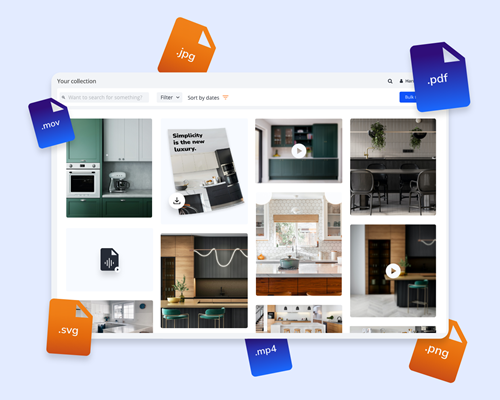Content Hubs are key to Product Experience Management
Encodify
6 min read

The challenge is that your customers are buying in a variety of different situations, channels and touchpoints. Just as you thought you had the customer locked in and ready to purchase in one of your
Face it: You are not selling - your customers are buying
Everything you do as a retailer needs to align with that fact. Even your product content, in any shape it might have.
The challenge is that your customers are buying in a variety of different situations, channels and touchpoints. Just as you thought you had the customer locked in and ready to purchase in one of your channels, they switched channel, met you in another channel - and then you lost them. Why?
To answer that question, you will probably need to look at multiple pieces of a larger puzzle. Pricing will be a very relevant piece to pick up and take a closer look at. But in case your pricing was spot on, then another piece to examine could very well be the product content served to the client at the touchpoint where they dropped out. Or your ability to manage complex and relevant assortments.
Product content is a vital base component in what is now often called The Product Experience. A primary objective as a modern retailer is to make sure that the customer can make a seamless buying journey with a unified buying experience across the various touchpoints. The product experience needs to be of the same high quality across all of them. Ensuring that is called Product Experience Management - or PXM. And the business approach behind it is called Unified Commerce.
Content in the broadest possible meaning is everything used to describe your products in a way where they will the highest likely probability will meet the customers and be purchased: Text content, price content, asset content, commercial content, technical content, video content, image content and so on and so forth.
For about a decade, PIM (Product Information Management) systems have been the first and foremost solution to pop up and to be implemented when it comes to managing content and finding product content management solutions.
We meet a lot of retailers who have spent considerable time, money and efforts to implement those PIM solutions, and Encodify regularly integrates to any PIM system out there.
However, often the PIM systems create even more significant problems than they solve. Retailers experience that:
- The PIM system very often sits as an island or silo in the system infrastructure.
- The focus on ensuring quality is usually high early in the process of buying and implementing the PIM solutions, but after a while, focus slips and data quality is not having as much attention as it should have.
- Running the actual business and getting campaigns produced for all channels is usually done outside the PIM anyway using Excel files.
- Important core retail workflows are often bypassing the PIM without stopping and touching it at all - the only contact is via data bridges made with Excel.
Why make the PIM investment in the first place, you might wonder?
Integrate to PIM
A first scenario could be to integrate to the PIM, so the data needed for optimising the business and fueling the core retail workflow is extracted and made available in an easy way at the right moment in time during the campaigning process.
If the existing PIM is really needed, another scenario could be to reshuffle the ownership of the data, and let Encodify feed data into the current PIM solution whenever the data has been created during the campaign process and onboarded into Encodify via the Encodify Supplier Portal. In that way, you will get all the benefits and workflow optimisation advantages of implementing Encodify to manage your core retail process.
A third scenario is to use the built-in Encodify Content Hub with powerful enterprise PIM and DAM capabilities and let Encodify manage not only your core process but also feed content into your various channels, touchpoints, and to your production. That enables you to integrate the product experience management process completely into your core campaigning workflow.
A fourth scenario is to harness the power of automation and artificial intelligence, with Encodify Content Hub, to automate as many activities as possible within your content creation, translation, and output generation workflow. This would reduce manual handling to an absolute minimum and merge the content management domain fully into your commercial workflows - and remove the final remaining bridges.
Encodify delivers a tailored Content Hub for your commercial and content challenges on an adaptable, integrated platform. Our platform fits your needs and not the other way around.
Efficient content management and PXM are crucial for all retailers, but the content management itself as an IT solution and as a discipline must be made an integrated part of your core retail workflow. After all, it is not content management which makes you a successful retailer.











